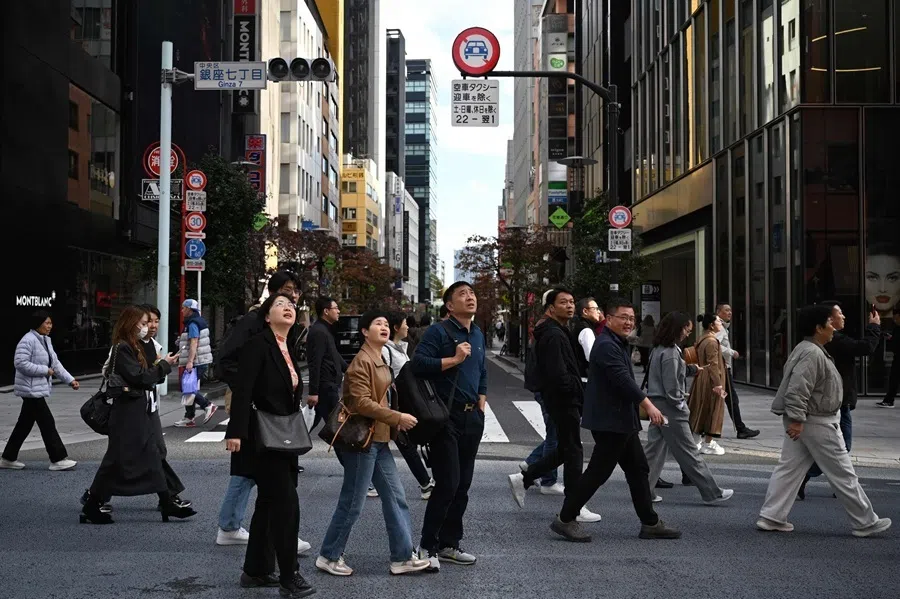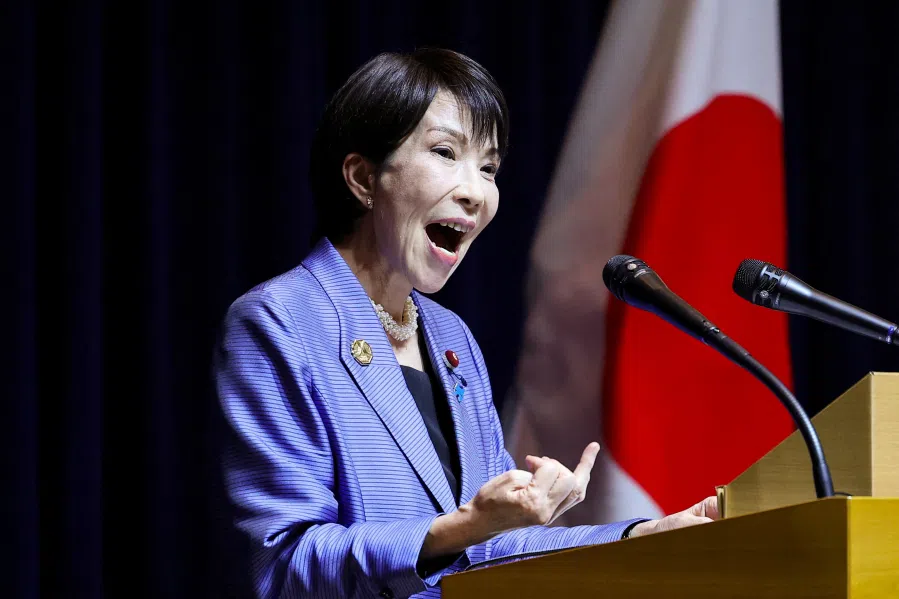Is the Hong Kong economy really in demise?
While naysayers have painted a doomsday scenario for Hong Kong since the plummeting of the Hang Seng Index, EAI senior research fellow Yu Hong points to Hong Kong's strong fundamentals, the vitality of the Greater Bay Area and the knock-on effects of the recovery of the mainland economy. He notes that as long as the mainland economy continues to grow, the Hong Kong stock market will remain attractive to regional and global investors.
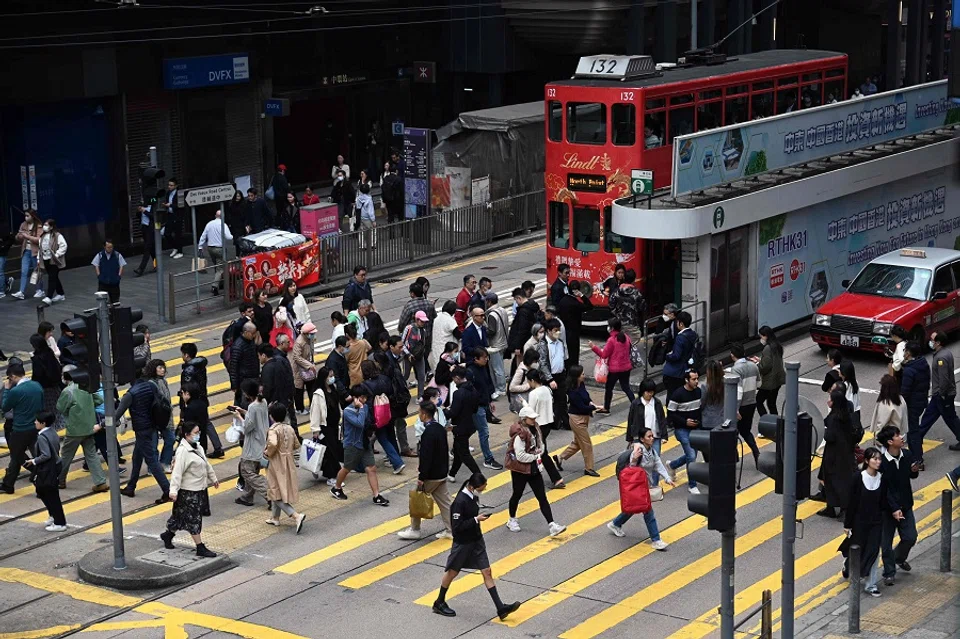
In combination with an ageing population and the economic slowdown in mainland China, global geopolitical tensions and the weak global economy during the post-pandemic era have hit the Hong Kong economy hard for the past several years.
The Hang Seng Index, which is a key indicator of Hong Kong's market performance, declined by almost 50% from January 2021 to January 2024. These uncontrolled adversarial factors could still pose daunting economic challenges to Hong Kong in 2024 and beyond. Hong Kong's external trade in general and its exports in particular will remain under pressure.
Domestically, the Chinese economy is facing a wave of increasingly pessimistic forecasts by the international community. In early February 2024, the China outlook report published by the International Monetary Fund (IMF) forecasted that the Chinese economic growth will decrease to 4.6% in 2024, and will further slow down to 3.5% in 2028.
The IMF warned that in addition to its economic slowdown, China will continue to face the economic impact of high local government debt, ongoing liquidity crisis in the real estate sector, declining productivity and population ageing. According to data from China's National Bureau of Statistics published in January 2024, China's total population in 2023 decreased by 2.08 million to 1,409 billion.
Given the close linkages between Hong Kong and the mainland, the projected secular or long-term slowdown in mainland China would have a significant ripple effect on the Hong Kong economy over the medium to long term.
Given the hegemonic position of the US in the global financial system, its determination to crush the Hong Kong economy in general and its financial sector in particular unleashes an astonishing level of combat power.
Continuing effects of US-China trade war
Externally, as the US and mainland China are Hong Kong's two largest trading and investment partners, the Sino-US trade war since 2018 has already taken a toll on Hong Kong's exports and re-exports. It has had a huge impact on the business and profit portfolio of related import, export and entrepot enterprises based in Hong Kong.
During the then Trump presidency, the American government announced that it would take action to remove Hong Kong's special treatment as a separate customs and travel area outside of the rest of China, including the US-Hong Kong agreement, extradition treaties and technology controls on dual-use goods.
Under the current Biden presidency, the strategic competition between China and the US has intensified and spread to the financial and technological fields. The US ban on the export of high-end technology to China has restricted the development of China's high-tech companies, for example the semiconductor and biomedical companies. Many of these firms are listed on both the mainland and Hong Kong stock exchanges.
... Hong Kong has been trapped in the crossfire of the Sino-US power rivalry.
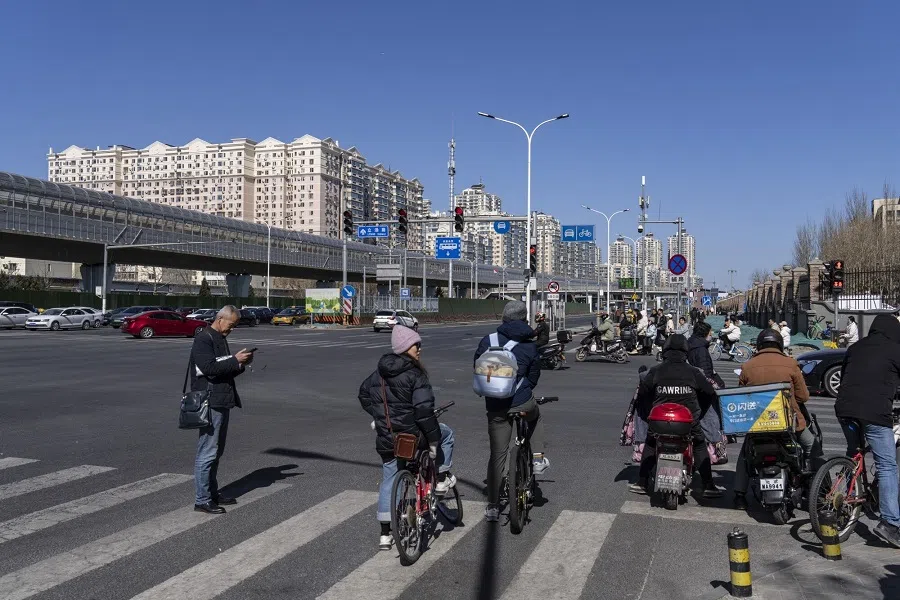
Given the hegemonic position of the US in the global financial system, its determination to crush the Hong Kong economy in general and its financial sector in particular unleashes an astonishing level of combat power.
Hong Kong has naturally come to the forefront in feeling the impact of the Sino-US power rivalry. With Hong Kong being one of the most open economies in the world and an international finance and trade centre, the strategic competition between China and the US and the global geopolitical tensions will surely affect the Hong Kong economy through different channels such as trade, labour force, technology and capital flows.
The Sino-US trade war and their broad strategic competition have weakened business and investment confidence in Hong Kong in recent years. It is expected that the bilateral relations between the US and China will not improve for the coming decade. Unfortunately, Hong Kong has been trapped in the crossfire of the Sino-US power rivalry.
Perennial strengths despite circumstances
Although many daunting issues and challenges face Hong Kong, its unique strength and international standing remain largely intact. Hong Kong's strength derives firstly from its financial and related professional expertise, market efficiency, simple and low taxation, free port, independent judicial system in line with Western standards, and sound financial oversight.
Hong Kong has continued to rank near the top on many indicators, such as "freedom of trade and investment", "efficient governance and transparency", "business environment", "sound policy and prudent regulatory framework" and "low and simple taxation system", according to many different international organisations.
In addition, Hong Kong has long maintained its position as the world's most open economy, with free access to capital, no investment restrictions, and free and convenient connections with major financial markets and customers from all over the world.
Over the years, Hong Kong has implemented an open talent policy that has attracted outstanding financial and professional service talents from all over the world.
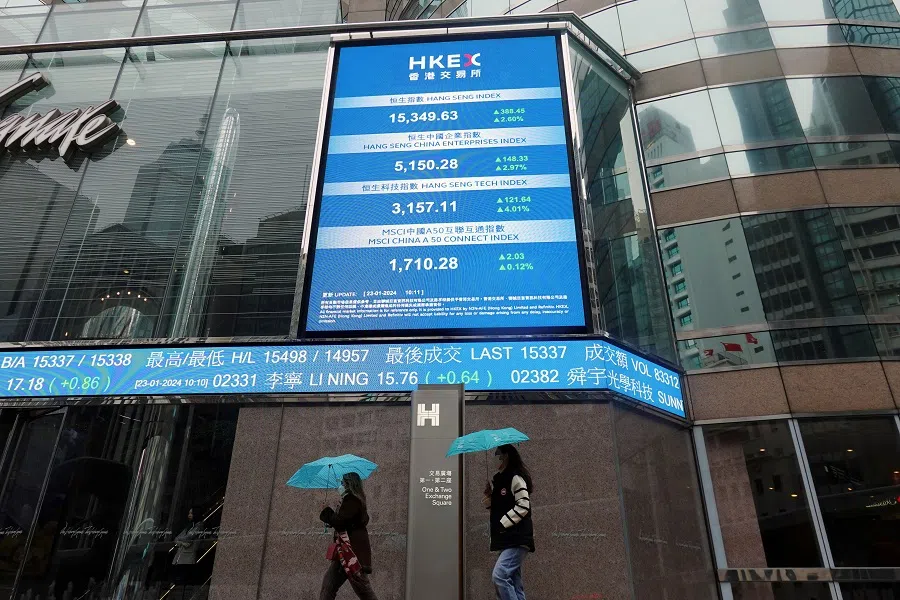
The combination of these strengths which were developed over decades, will help the Hong Kong economy to cope with external challenges ahead. Amid the internal issues and external challenges faced, Hong Kong's economy shows adaptability and resilience. In 2023, following the lifting of strict pandemic-prevention measures and the reopening of its border for travel, Hong Kong's economy showed recovery after the global Covid-19 pandemic, registering GDP growth of 3.2%.
As long as Hong Kong can uphold and maintain this strength, as well as remain the bridge between mainland China and the world, it can ensure the resilience and competitiveness of its economy and continuous enhancement of its status as an international financial and shipping centre. These advantages are unlikely to be eliminated by the Sino-US rivalry.
Over the years, Hong Kong has implemented an open talent policy that has attracted outstanding financial and professional service talents from all over the world. The World Economic Forum report has found that Hong Kong has a leading supply of talent compared to other major economies in the region, with more than 200,000 financial practitioners and tens of thousands of professional accountants, solicitors, barristers and IT experts, many of whom are high-level international professionals with extensive international experience and ready to provide financial technology and professional support.
Vitality of GBA will give Hong Kong economy a boost
It is thus far too early to predict the demise of Hong Kong or make sensational claims such as "Hong Kong is over", which was recently asserted by Stephen Roach, a long-time China watcher in the West and former chair of Morgan Stanley Asia, in his commentary article for Financial Times in February 2024.
The GBA, with a combined economy of around US$2 trillion, as large as the Italian economy, is a rising mega city-cluster in the Asia Pacific region.
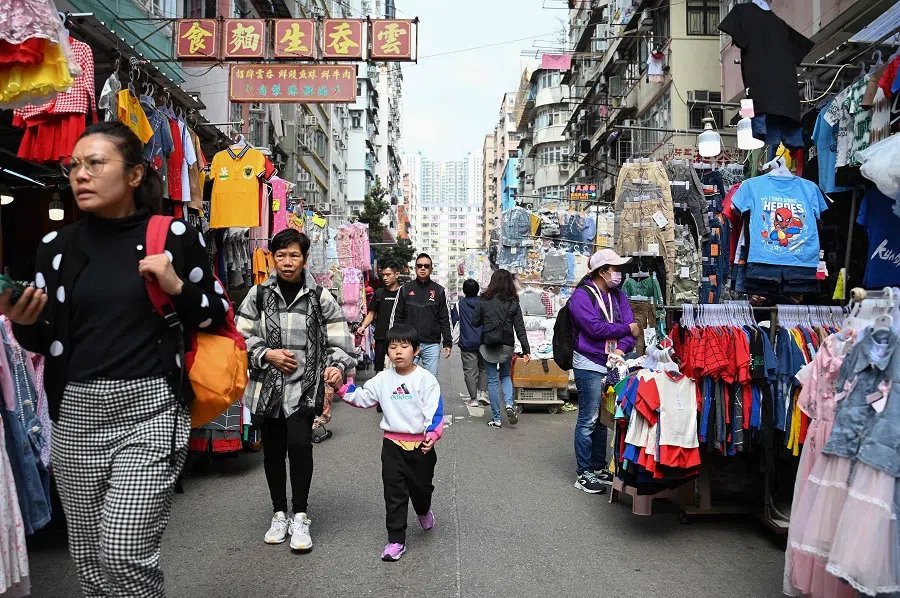
Hong Kong's journey from an unknown small fishing port to a renowned international financial centre has been remarkable. The system and rules for maintaining the orderly operation of the market economy were guaranteed under the "one country, two systems" principle implemented after the handover of Hong Kong's sovereignty to China in 1997.
These include a strict property rights system to ensure that property rights are not infringed, a free port system with the lowest transaction costs for international economic and trade activities that have been implemented since the opening of the port in 1841, a system of maximising liberalisation of the business space for market players.
Economic integration with mainland China in general and the Guangdong-Hong Kong-Macau Greater Bay Area (or the GBA for short) in particular, and the Hong Kong authorities' policy measures on attracting foreign talents and promoting science, innovation and technology development may help Hong Kong to avert any drastic deceleration in economic growth.
The GBA, with a combined economy of around US$2 trillion, as large as the Italian economy, is a rising mega city-cluster in the Asia Pacific region. Hong Kong sits at the heart of the GBA. The vast consumer and production market of the GBA will always provide the buffer and opportunities for the Hong Kong economy.
Much of China's affluent and middle-class population is concentrated in the GBA.
Many Hong Kongers nowadays go north to the neighbouring cities of Shenzhen and others for shopping and leisure in the post-pandemic era. This new phenomenon reflects the growing integration between Hong Kong and the GBA. Due to Shenzhen's relatively low prices, wide variety of choices, and convenient commute, it has become a trend for Hong Kong people to go shopping and spending in Shenzhen, and the trend is likely to continue.
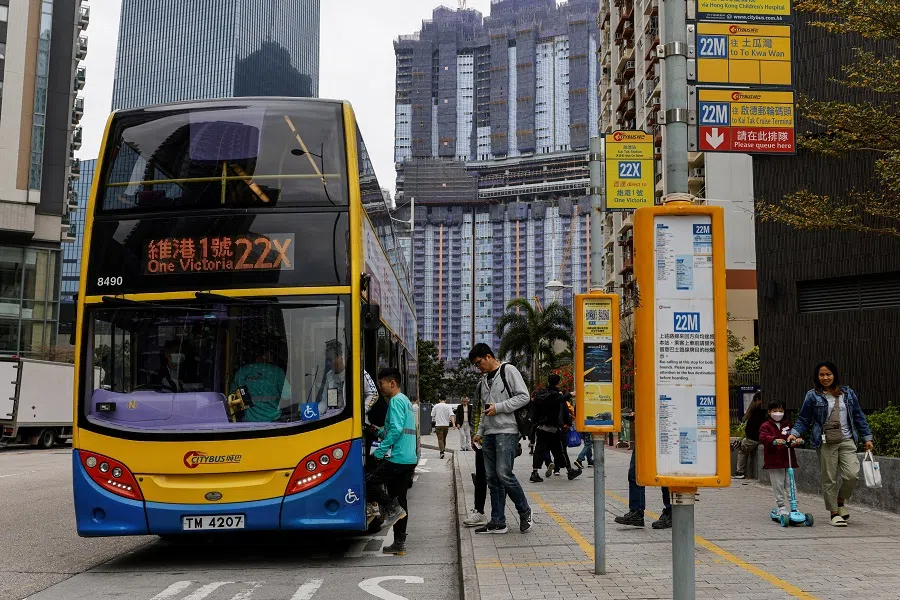
The Chinese authorities no doubt will be determined to shore up the Hong Kong economy if necessary. When China began its economic reform and opening up in the late 1970s, its per capita GDP was less than US$300, about 3% of that of the US, and by 2022, its GDP had increased by over 60 times, its per capita GDP increasing from about US$1,000 in 2001 to US$12,000 in 2022.
The Chinese middle class, which has increased in number to around 400 million, has an ever increasing ability to spend on quality goods and services to support their middle-class lifestyle. Much of China's affluent and middle-class population is concentrated in the GBA. In 2023, consumption has become the driving force for boosting the Chinese economy, accounting for 83.5% of GDP growth.
Potential for greater consumption
It is not worthwhile to bet on the decline of China or subscribe to the "peak China" narrative. As the world's second-largest economy in nominal GDP (and the largest economy in purchasing power parity terms), the Chinese economy is a huge, vibrant and resilient market with strength in the integrated manufacturing capacity and internal regional dynamic. Urban transformation and development could bring new opportunities for the Chinese economy as well.
In 2023, China's urbanisation rate was about 65%, which is still more than ten percentage points away from the level of developed countries. Meanwhile, the urbanisation rate of the registered population in 2023 was even lower, being only 47.7%, and with more than 250 million rural migrants working and doing business in cities and towns who have not yet achieved urbanisation. If these people were to have urban household registration and enjoy the same basic public services as urban residents, according to the OECD estimation, their actual consumption level would increase by about 30%.
... by June 2022, the total number of mainland Chinese-funded enterprises in Hong Kong had exceeded 4000, with total assets reaching US$14.98 trillion.

Evidently, the economy and social-economic development of Hong Kong have become entwined in an increasingly inseparable relationship with the mainland over the years, and Hong Kong has also become increasingly dependent on the mainland. Hong Kong continues to serve Chinese enterprises in overseas financing and mainland residents in allocating assets overseas, as well as acting as a gateway to help overseas investors to invest in the mainland.
Hong Kong's financial market has an offshore character, with companies from mainland China accounting for about 76% of the market capitalisation and trading volume of the Hong Kong stock market. There were 1429 mainland companies listed in Hong Kong by June 2023, raising over HK$8.1 trillion (US$1.04 trillion) and a total market capitalisation of HK$28.3 trillion. According to the data from China's National Development and Reform Commission, by June 2022, the total number of mainland Chinese-funded enterprises in Hong Kong had exceeded 4000, with total assets reaching US$14.98 trillion. This burgeoning growth will continue into the future.
... since 2009, Hong Kong has pursued the trend of RMB internationalisation and vigorously expanded offshore RMB business, becoming the longest-standing, largest and most standardised offshore RMB hub.
RMB internationalisation will be an advantage
The rapid growth of the mainland's economy over the past 30 years has been the biggest driving force for Hong Kong's financial and economic development. With China's push for the Belt and Road Initiative and its integration with the global economy, the RMB internationalisation will be enhanced. It will be of enormous benefit to the Hong Kong economy.
In the 1990s, Hong Kong actively attracted mainland enterprises to list in Hong Kong to raise funds, and since 2009, Hong Kong has pursued the trend of RMB internationalisation and vigorously expanded offshore RMB business, becoming the longest-standing, largest and most standardised offshore RMB hub.
Hong Kong's financial linkages with mainland China are deepening, which has helped to reinforce Hong Kong's status as an important financial centre. Shanghai-Hong Kong Stock Connect, Shenzhen-Hong Kong Stock Connect and Bond Connect were the first to realize the interconnection between the domestic stock and bond markets and Hong Kong's capital market.
As long as the mainland economy continues to grow, the Hong Kong stock market will remain attractive to regional and global investors. Hong Kong IPOs continue to maintain their leading position in the world. Hong Kong remains the main platform for the international development of mainland enterprises and the entry of international enterprises into mainland China.
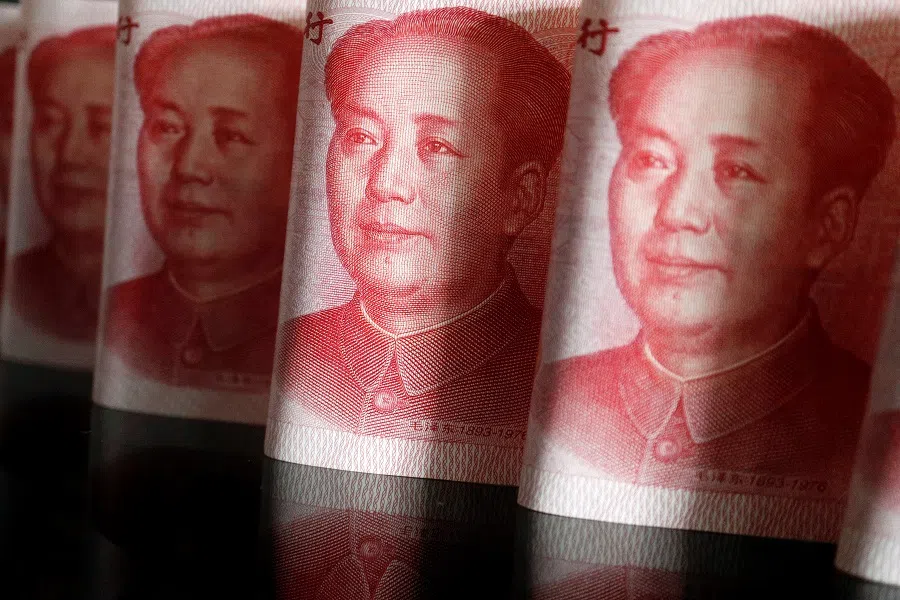
Since taking office as the Hong Kong chief executive in 2022, John Lee and his administration have prioritised policy measures to promote sustainable economic growth, innovation and technology development, attracting global investment, enterprises and talents, and tackling some long-held socio-economic problems such as housing shortage and affordability. John Lee himself and other senior officials have been busy travelling to many fast-growing emerging countries since 2022, from Southeast Asia to the Middle East, to grab business opportunities and secure market access for the Hong Kong companies.
For Hong Kong to retain its competitive edge, its longstanding freedoms of speech, assembly, and demonstration, as well as other civil rights granted to Hong Kong people by the Basic Law, should continue to be fully protected...
Hong Kong a continued bridge
Hong Kong is not only an international metropolis and global financial centre, but also a link between the East and the West, and will continue to serve as a bridge between China and the world. In addition, forging close cooperation with the RCEP (Regional Comprehensive Economic Partnership) member countries in terms of trade, investment, connectivity, education, technology and human resources will help consolidate Hong Kong's competitiveness as the important financial and trading hub in the Asia Pacific region. Hong Kong has already submitted its application to join the RCEP.
For Hong Kong to retain its competitive edge, its longstanding freedoms of speech, assembly, and demonstration, as well as other civil rights granted to Hong Kong people by the Basic Law, should continue to be fully protected, and the legitimate rights and interests of Hong Kong residents and foreign investors should be safeguarded and protected, and crucially, should not be compromised by the enforcement of the national security law. This is also essential in terms of maintaining global confidence in Hong Kong to keep the capitalist system unchanged and safeguard Hong Kong's long-term prosperity as an important international financial and shipping hub.
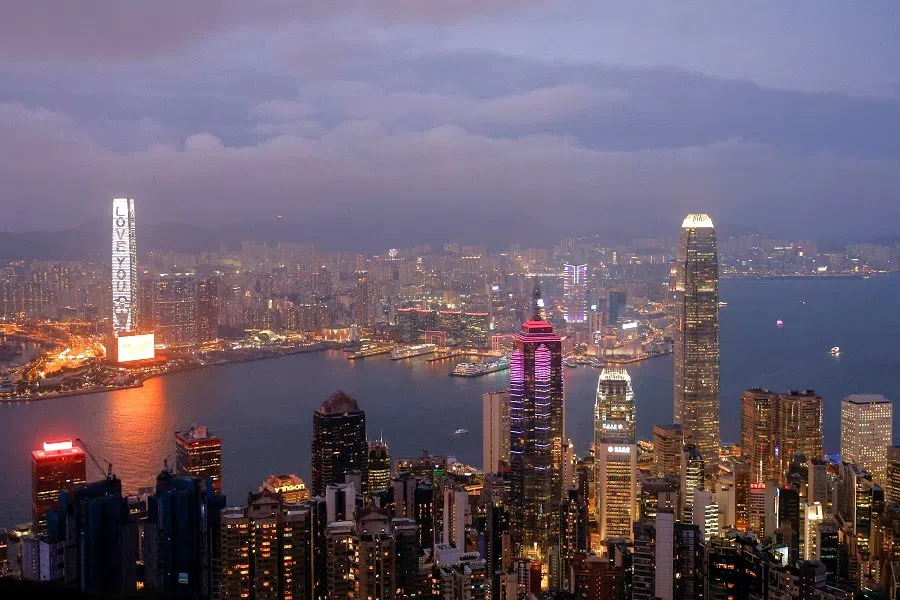
The stability of the social order has always been a necessary condition for achieving economic growth for a country/region. For a tiny island economy like Hong Kong, without stability and rule of law, there can be no prosperity or development.
In order to achieve long-term peace and stability in Hong Kong, and to ensure the sustainability of Hong Kong's economic growth, from the perspective of the Chinese authorities in Beijing, the expeditious completion of the national security law is a necessary move to fully implement the Basic Law and make up for the shortcomings in the implementation of the Basic Law.
Many dissidents, opposition party figures and academics fled from Hong Kong after the implementation of the 2020 Law of the People's Republic of China on Safeguarding National Security in the Hong Kong Special Administrative Region to continue their activities in the UK, Germany, Australia, the US and Taiwan. These groups of people have shown their determination to take on both Hong Kong and the mainland governments and are expected to continue to maintain their advocacy and lobbying work in the West.
In the eyes of Beijing, without the implementation of the national security law, Hong Kong's stability and China's rule and sovereignty over Hong Kong cannot be guaranteed, and China's national security and interests will inevitably be harmed.
Having said that, the Hong Kong authorities should continue to uphold the rule of law and common law systems, strengthen excellent financial regulation and supervision framework, and attract more talents from both mainland China and abroad to sustain world-class financial and other related professional services. This will help consolidate Hong Kong's competitiveness.



